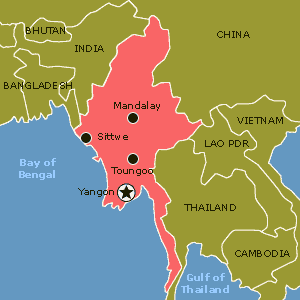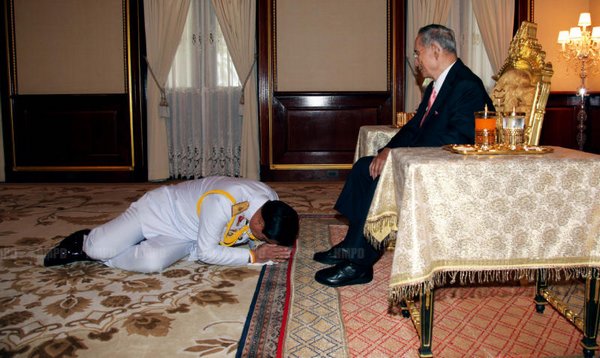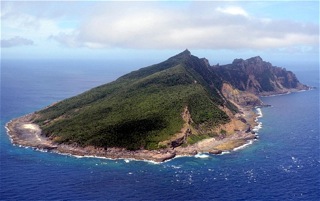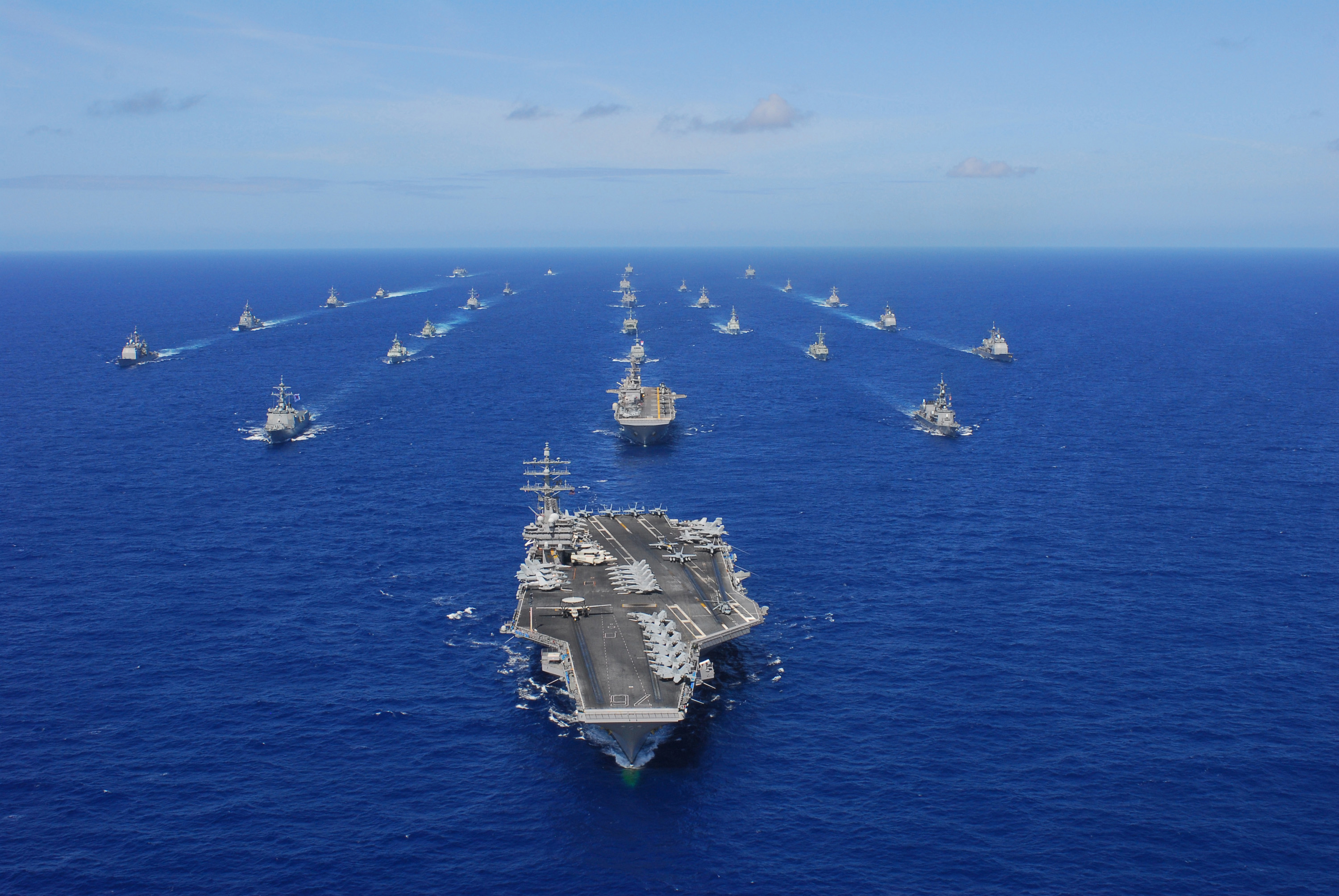Burmese President Thein Sein arrived in Norway on February 25th to begin an unprecedented 11 day, 5 country tour of Europe, marking yet another milestone in the former military junta’s remarkable return from self-imposed political and economic exile.
At the time, Burma’s 2008 constitutional referendum was met with widespread skepticism from the international community. Popular opinion of the reclusive military junta was at an all time low, as the world had just witnessed its brutal crackdown of the Buddhist monk-led Saffron Revolution less than a year ago. The government’s credibility was further undermined by its handling of a devastating cyclone that struck the region around the time of the referendum, as it was condemned by numerous humanitarian organizations criticized for obstructing and delaying crucial international aid to its impoverished and displaced citizens. Given the nation’s previous history of popular repression, media censorship, and forced detainment of political dissidents, foreign observers generally concluded that the call for reforms amounted to no more than a cosmetic gesture aimed at bolstering the authoritarian regime’s external legitimacy.
Today, less than five years later, Burma’s sustained progression towards democratic reform has begun to sway even its most steadfast critics. Since coming into power in 2011, President Sein has overseen a dramatic liberalization of the country’s monetary and fiscal policies, including: the adoption of a market oriented exchange rate, a reduction of tariff restrictions on imports, and the impending establishment of an independent central bank. Burma is set in 2014 to become the chair of the Association of Southeast Asian Nations (ASEAN), a leadership role in the region’s overarching geopolitical and economic body that it turned down as recently as 2005. Sein’s government has also taken steps towards relaxing its media censorship laws, and has facilitated the release and repatriation of thousands of political prisoners and exiles. Aung San Suu Kyi, the Nobel Prize-winning leader of Burma’s largest pro-democracy political faction, was freed from years of house arrest and given a position in parliament after winning a national by-election by a landslide. Once the most prominent opponent of the Burmese government’s actions, Suu Kyi is now vocally optimistic that her country is headed in the right direction.
The developed nations of the world have been quick to recognize and reward Sein’s administration for its efforts. Following the suspension of decades-long economic sanctions, the United States, Canada, and the European Union have all since made concerted efforts to re-establish trade relations with Burma. Barack Obama paid a short visit as part of his South Asian tour in November of 2012, marking the first time an American President had ever visited the former pariah state. In a speech given at the University of Yangon, he emphasized the US’s commitment to investing in the Burmese economy and assisting the country down the path of democratization. These sentiments have been largely echoed by leaders of the European Union. In addition to inviting Sein on a cross-continental tour, the EU has also pledged to provide Burma with more than $100 million in developmental aid. On the Canadian front, federal envoys are currently in the preliminary stages of talks with the Burmese government regarding a potential foreign investment promotion and protection agreement. With a new embassy in Yangon also under construction, the Harper administration appears determined to keep up in the race to grab market share in this emerging Asian economy.[captionpix align=”right” theme=”elegant” width=”320″ imgsrc=”http://transitions.foreignpolicy.com/files/obama_thein_sein_1_edited_.jpg” captiontext=”Burmese President Thein Sein, seen here with US President Barack Obama, has spearheaded unprecedented economic and political reforms in the former military autocracy.
Source: Foreign Policy.”]
Burma`s relatively young population of 60 million is ready to immediately pose stiff competition for its Southeast Asian neighbours as an attractive location for the outsourcing of cheap labour. The country is also abundant in crucial natural resources such as oil and natural gas, and enjoys a geographically advantageous location between the booming economies of India and China. However, North American and European businesses must scramble to catch up with Chinese investors, who have had a significant head start in establishing a foothold in Burmese industries through years of Western sanctions and embargos. The nature of Burma`s reception and reaction to increased foreign attention will have profound implications for the balance of power in the international system going forward.
Many international observers have advocated for an attitude of cautious optimism in approaching and analyzing Burma`s reforms. Despite its vocal commitment to political change, the country has yet to fully embrace the central tenets of democratization. As only a small percentage of parliamentary seats were contested in the 2011 by-elections, Suu Kyi’s decisive victory translated to a negligible shift in the structure of government. As former army commanders, Sein and other senior members of the administration are dogged by their association to the former junta that was responsible for the torture, murder, and detainment of thousands of unarmed protestors in both the 1988 and 2007 popular uprisings. Some have also raised fears that Burma’s reforms may become derailed by crony capitalism and bureaucratic corruption, causing the country to develop into an oligarchy in the mould of Russia. Given the significant progress that has been made in the span of just a few years, however, the regime has earned itself the benefit of the doubt.




